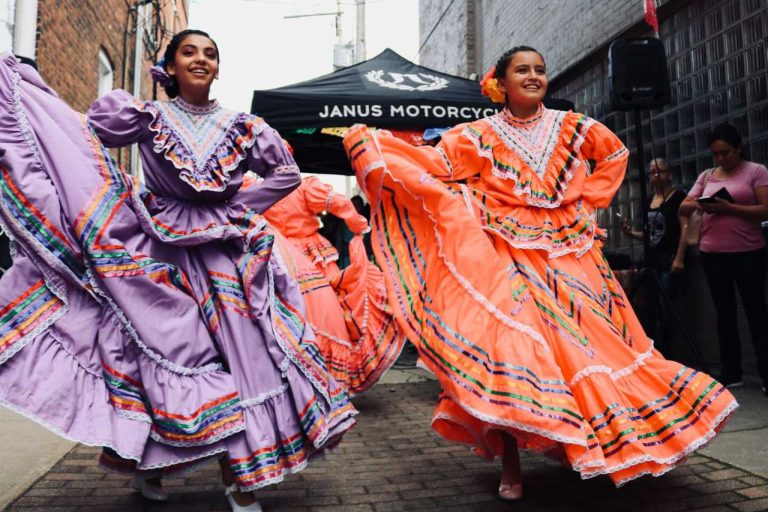
38 Hilarious Spanish Jokes with Easy Explanations
DATE:
Spice up your Spanish learning journey beyond grammar and verbs by infusing it with humor! Incorporating fun elements like video games, TV series, and especially jokes in Spanish can transform your language experience.
Jokes are more than just laughs; they’re a powerful tool for learning. They help you uncover phonetic similarities and the multifaceted meanings of words, making your study sessions both enjoyable and insightful.
In this post, we present 39 witty Spanish jokes guaranteed to bring a smile to your face. Each one comes with an explanation to ease your understanding. Challenge yourself: share these jokes with a Spanish speaker and watch their reaction. Ready to laugh and learn? ¡Empecemos con estas 39 bromas españolas!
Spice Up Your Spanish with 38 Jokes That Are Simply Hilarious
1. ¿Qué le dijo un jaguar…?
– ¿Qué le dice un jaguar inglés a otro?
– Jaguar you!
– What does an English jaguar say to another one?
– Jaguar you!
This one must be easy for you, but if you didn’t get it, “Jaguar you” sounds more like how are you in English, so this one is a bilingual joke! LOL!
2. Gato’s Car Accident
¿Qué dijo el gato después de chocar su carro? ¡Miauto!
:
What did the cat say after crashing its car? My-auto!
:
This joke plays on the sound a cat makes, “meow,” which sounds like “miauto” (my car). It’s a fun pun mixing animal sounds with car terms.
3. Manos Enormes
– Jaimito, si en esta mano tengo ocho naranjas y en esta otra seis naranjas. ¿Qué tengo?
– ¡Unas manos enormes, maestra!
– Jaimito, if in this hand I have eight oranges and in this other six oranges. What do I have?
– Huge hands, teacher!
FUN FACT…
In Spanish-speaking countries, there’s a character named “Jaimito” who is a small and quite mischievous boy who continually asks silly questions and plays pranks on people. In many Spanish jokes and puns, you will hear this name very often. You can also hear of Pepito, Benito, Toto, Pedrito or Johnny.
4. Conversational Shoes
¿Por qué hablas con tus zapatillas? Es que en la caja dice Converse.
“Why are you talking to your shoes? Because the box says Converse.”
This pun uses the double meaning of “Converse.” In Spanish, it’s the formal command form of “conversar” (to converse), leading to a humorous mix-up with the shoe brand.
5. Libros agotados
– ¿Tienen libros sobre el cansancio?
– Sí, ¡pero están todos agotados!
– Do you have any books that talk about tiredness?
– Yeah, but they ran out!
“Agotado” not only means exhausted, but it can also mean sold out, out of stock, ran out, or unavailable, very clever, right?
6. Running Water
¿Qué corre pero no puede caminar? ¡Agua!
“What runs but can’t walk? Water!”
This plays on “correr” (to run) and “caminar” (to walk). Here, “correr” refers to the flow of water, as in a river “running,” but water can’t “walk.”
7. Vengansa
– ¿Qué le dijo un ganso a una gansa?
– ¡Ven-gansa!
– What did a goose (male) say to a goose (female)?
– Revenge!
Another pun, this one is a little bit more difficult to understand, so here’s the explanation. Ven gansa (which means “come goose”) sounds very similar to the word Venganza (which means revenge in Spanish).

8. Handsome Son
Papá, ¿qué se siente tener un hijo tan guapo? No sé hijo, pregúntale a tu abuelo…
“Dad, what does it feel like to have such a handsome son? I don’t know son, ask your grandfather…”
The father humorously implies he’s the handsome one, suggesting his own father would know what it’s like to have a handsome son.
9. Huevos de Pascuas
– Pepito, ¿por qué le das chocolate a las gallinas?
– ¡Para que pongan huevos de Pascua!
– Pepito, why are you feeding the hens with chocolate?
– So they can lay easter eggs!
You can also use this Pepito joke in both languages, as they have the same meaning! Great punch-line, right?
10. The Magician’s After-Dinner State
¿Cómo se queda un mago después de comer? Magordito.
“How does a magician stay after eating? Magordito.”
“Magordito” is a play on “mago” (magician) and “gordito” (chubby), humorously suggesting the magician feels full or “chubby” after a meal.

11. Gato bilingüe
Un gato caminaba por un tejado maullando:
– ¡Miau, miau!
En eso se le acerca otro gato:
– ¡Guau, guau!
Entonces el primer gato le dice:
– Oye, ¿por qué ladras si tú eres gato?
Y el otro le contesta:
– ¿Es que uno no puede aprender idiomas?
A cat was walking across a roof meowing:
– Meow meow!
Another cat approaches and says:
– Woof woof!
Then, the first cat tells him:
– Hey, why do you bark if you’re a cat?
And the other cat answers:
– So what? We can’t learn languages?
Naming your cat with a Spanish name is a great idea to motivate you to practice the language. Check out the most popular Spanish cat names we’ve gathered for you.
12. The iStruggle
Papá, ¿por qué no tengo ni un iPhone, ni iPad, ni iPod? Porque no iDinero.
“Dad, why don’t I have an iPhone, iPad, or iPod? Because no iMoney.”
:
The pun plays on Apple’s “i” product naming scheme, humorously adding “i” to “money” to suggest a lack of funding for these devices. It also plays with the verb “Haber”, in this case “Hay” whose pronunciation is similar to the “i” in English.
13. El planeta miércoles
Una maestra pregunta en clases:
– Pedrito, ¿qué planeta va después de Marte?
– Miércoles.
Co
A teacher asks in class:
– Pedro, what planet comes after Mars?
– Wednesday.
Pedrito confuses the name of the Mars planet with the Spanish day of the week Martes (Tuesday)
QUICK NOTE…
Remember! The names of the days of the week in Spanish are Lunes, Martes, Miercoles, Jueves, Viernes, Sabado, and Domingo (starting from Monday).
14. Elegant Elephants
¿Qué hacen los elefantes para ser elegantes? Cambian la F por la G.
“What do elephants do to be elegant? They change the F to G.”
This wordplay suggests changing “F” in “elefante” to “G” makes it “elegante” (elegant), a playful linguistic twist.
15. El colmo de un peluquero
– ¿Cuál es el colmo de un peluquero?
– ¡Que le tomen el pelo!
– What’s the last straw for a barber?
– That they can be taken by the hair!
You know it as “pulling someone’s leg”, “poking fun”, “pulling the wool over the eyes”, or “kidding someone.” “Tomar el pelo” is an Idiom, and means someone is being cheated or mocked by someone else, or by you, used to make funny jokes.
DID YOU KNOW…?
A “colmo” is usually used as a joke about something absurd or that reaches its maximum degree. A colmo is a situation or something that exceeds the limits. Do you know any colmo to share?
16. The Heavier Bird
¿Pesa más un pájaro de tres kilos o un bebé de tres kilos? El pájaro porque pesa tres kilos y pico.
“Which weighs more, a three-kilo bird or a three-kilo baby? The bird, because it weighs three kilos and a beak.”
“Pico” means beak but also “a bit more,” implying the bird is slightly heavier due to its beak.
17. Luces intermitentes
– Pepe, bájate del coche un momento y dime si funciona el intermitente de la derecha.
Pepe se baja, observa y dice:
– Ahora sí, ahora no, ahora sí, ahora no, ¡ahora sí!
– Pepe, get out of the car for a moment and tell me if the right blinker works.
Pepe gets out, looks, and says:
– Now yes, now no, now yes, now no, now yes!
Simple but funny joke, it doesn’t need extra help to understand it!
18. A Sinner’s Prayer
A: – Padre, ¿qué puedo hacer por mis pecados?
B: – Ora, hijo mío, ora.
A: – Las once y media, padre.
“A: Father, what can I do for my sins? B: Pray, my son, pray. A: Half-past eleven, father.”
“Ora” can mean “pray” or “hour.” The son misinterprets it as the time, adding humor to the religious context.
19. Ballena va llena
– ¿Cuántos peces caben en una ballena?
– Ninguno, ¡porque va llena!
– How many fish fit in a whale?
– None, because it is full
This is another word game where “Ballena” (whale in Spanish) sounds pretty much like “Va llena” (goes full).

20. The Smart Coffee
¿Por qué el café se fue a la escuela? Porque necesitaba un poco de concentración.
“Why did coffee go to school? Because I needed a little bit of concentration.”
The joke is a play on words. In Spanish, “concentración” means “concentration”. So, when asked why the coffee went to school, the answer is “Because it needed a little concentration”. The humor comes from the unexpected and clever wordplay, as if the coffee were a student who needs to concentrate to study. Also, it’s a pun because coffee is often associated with helping people concentrate, and also as charge coffee.
21. Kung fu, ¿muerto?
– ¿Por qué mataron a Kung Fu?
– ¡Porque lo kung fundieron con otra persona!
– Why did they kill Kung Fu?
– Because they Kung-fused with another person!
This one is a little bit lame, but it will work to check the reaction of someone else! It doesn’t have to be explained as the translation is the same!
22. The Astronaut and the Moon
¿Por qué el astronauta no pudo reservar una pensión en la luna? Porque estaba llena.
“Why couldn’t the astronaut book a pension on the moon? Because it was full.”
The joke uses “llena,” meaning “full,” in a double sense. It refers both to the moon being in its ‘full’ phase and the idea of a lodging place being fully booked. It’s a clever play on the multiple meanings of “llena.”
23. ¿Cereza yo?
– ¿Qué le dijo la cereza al espejo?
– ¿Cereza yo?
– What does the cherry say when it looks in the mirror?
– Would she be me?
In case you didn’t get it, the cherry says to herself “¿Cereza yo?” but it’s actually “¿Seré esa yo?” which translates into something like “Would she be me?”
24. Old MacDonald’s Daughter
¿Qué dijo el Viejo MacDonald cuando tuvo una hija? Hi-ja Hi-ja Oh.
“What did Old MacDonald say when he had a daughter? Hi-ja Hi-ja Oh.”
This joke twists the familiar “E-I-E-I-O” from the nursery rhyme “Old MacDonald Had a Farm” into “Hi-ja Hi-ha Oh,” humorously suggesting that Old MacDonald is greeting his daughter (“Hi-ja” meaning “daughter” in a playful way in Spanish). It’s a whimsical adaptation of a well-known rhyme to fit a familial context.
25. Zorro inglés
Va un zorro inglés por el bosque y se choca contra un burro. El zorro le dice:
– I’m sorry.
A lo que el burro responde:
– I’m burry.
An English fox is going through the woods and collides with a donkey. The fox says:
– I’m sorry.
To which the donkey replies:
– I’m burry.
This is a very classic joke! The English fox says “I’m sorry”, the donkey was thinking that the fox was just saying his name, and wanted to do the same, but because he doesn’t speak English very well, he replicates what the fox says with his name. Zorro (Fox) Sounds similar to the English word “Sorry” that’s why the donkey gets a little bit confused.
Looking for more fun? Test your language skills with these brain teasers and creative Spanish riddles.
26. Escoba
-¿Por qué está tan feliz la escoba?
–Porque ba-rriendo.
– Why is the broom so happy?
– Because it’s sweeping.
Probably, you didn’t get this one, and that’s ok! “barriendo” (sweeping in Spanish) sounds like “va riendo” (it’s laughing).
27. Planta que camina
– ¿Cuál es la única planta que camina?
– La planta de los pies.
– What is the only plant that walks?
– The sole of the feet.
And another great joke! “Planta” not only means a tree in Spanish, but it can also mean planta de los pies (the sole of the feet).
28. ¿Agustín?
– Hola, ¿Está Agustín?
– No, estoy incómodo.
– Hello, is Agustín there?
– No, I’m uncomfortable.
Classic confusion, in some countries of Latin America (mostly among young people), Agustín is a Spanish slang way to refer to “a gusto” (feeling relaxed and comfortable).
DID YOU KNOW…?
In Spanish, we use the verb estar to describe temporary feelings and locations of things or people. There’s a verse you can use as a mnemonic device to help you recall when to use estar: “How you feel and where you are, always use the verb estar”.
29. ¿Nada nada?
– Señorita ¿usted no nada nada?
– ¡Uy! ¡Es es que no traje traje!
– Ma’am, you don’t swim at all? Do you?
– The thing is that I didn’t bring a swimsuit!
Nada not only means “nothing” but it also, as a verb, means “swim”, sometimes, people tend to shorten the word swimsuit “traje de baño” into suit “traje”, and “traje” (the past tense in the first-person singular of the Spanish verb traer) means “brought” as well.
So you can translate “traje traje” as I brought a suit and “nada nada” as you can’t swim anything!
30. Knock Knock Jokes in Spanish
In this one, we will be bringing you the best 3 knock knock jokes in Spanish:
• La vaca que interrumpe
– Tock, tock.
– ¿Quién es?
– La vaca que interrumpe.
– ¿Qué vaca que interr…?
– ¡Muuuuu!
– Knock knock
– Who’s there?
– Interrupting Cow
– Interrupt…?
– Mooooo!
• Abraham
– Tock, tock.
– ¿Quién es?
– Abraham.
– No hasta que me digas quién eres.
– ¡Abraham!
– Lo siento, pero no te abro si no me dices tu nombre.
– Soy ¡ABRAHAAAAAM!
– Aaaaah, debiste comenzar por allí
– Knock Knock.
– Who is it?
– Abraham.
– Not until you tell me who you are.
– Abraham!
– I’m sorry, but I won’t open the door if you don’t tell me your name.
– I am ABRAHAAAAM!
– Aaaaah, you should have started there
The biblical name Abraham is pronounced in Spanish similar to the command form of the verb abrir, “abran la puerta” (you open the door)
• Juan
– Tock tock.
– ¿Quién es?
– Juan.
– ¿Juan quién?
– Juan two three!
– Knock knock
– Who is it?
– Juan
– Juan who?
– Juan two three
This is one of the most known Knock Knock Jokes in Spanish out there. Juan is a very common name in Spanish, and the pronunciation sounds like number one in English!
As you may have noticed already, Spanish is a diverse and colorful language, full of expressions that do not always translate directly into English. And that’s the beauty of it. Check out our guide of funny Spanish sayings and proverbs to think and sound like a native.
31. Huevo quebrado
– ¿Por qué el huevo fue al banco a pedir dinero prestado?
– Porque estaba quebrado.
– Why did the egg go to the bank to borrow money?
– Because it was broke.
32. Libro triste
– ¿Por qué está triste el libro de matemáticas?
– Porque tiene muchos problemas.
– Why is the math book sad?
– Because it has many problems.
33. DOGtor
– ¿Cómo se dice veterinario en inglés?
– Dogtor.
– How do you say veterinarian in English?
– Dogtor!

Looking for great ideas to name your puppy in Spanish? Check out our list of the best Spanish dog names. And, while we’re at it. Teach them new tricks while you learn a new language together with these 15 easy dog commands in Spanish.
34. Nunca unca
– ¿Sabes inglés?
– ¡Claro!
– ¿Como se dice “Never”?
– Nunca.
– ¿Y “Never Ever”?
– ¡Nunca, Unca!
– Do you know English?
– Of course!
– How do you say “Never”?
– Nunca.
– And “Never Ever”?
– Nunca, Unca!
35. English test
– ¿Cómo se dice “ojos” en inglés?
– Eyes.
– ¡No! Ice es hielo.
– ¡No, yellow es amarillo!
– Ahhh.
– How do you say “ojos” in English?
– Eyes.
– Nope! “Ice” is “hielo”.
– No, “yellow” is “amarillo”!
– Ahhh!
36. Bilingual zombies
– Los Zombies que hablan español e inglés…
– ¿Zombilingües?
– The Zombies that speak Spanish and English…
– Zombie lingual?
Can Zombies be bilingual? Perhaps! In this joke, “zombilingües” sounds like “son bilingües” (they’re bilingual).
37. No iDinero
– Papá ¿porque no tengo el nuevo iPhone?
– Lo siento hijo, es que no iDinero.
– Dad, why don’t I have the new iPhone?
– I’m sorry son, it’s just that there’s no money.
This might be a good joke for some people and sad for others, In this one, “no iDinero” sounds like “no hay dinero”, dad’s always clever, right?
Be the comedy legend in any family gathering with these 20 Dad Jokes in Spanish that we have listed for you.
38. Tell me now
– Jaimito, ¿Cómo se dice “dime ahora”? En inglés.
– Facil teacher, tell me now!
– Perfect! Ahora construye una oración.
– Botaría esta banana en la basura pero aún no he tell me now.
– Jaimito, How do you say “dime ahora” in English?
– Easy teacher, tell me now!
– Perfect! Now use it in a sentence.
– I would throw this banana in the trash but I haven’t “tell me now”.
Haha! This is a very funny Spanish joke, “tell me now” sounds like the word “terminado”. Jaimito didn’t create a full sentence in English, but he could use “tell me now” in a sentence.
We know, we know…
These funny Spanish jokes might not be the top-tier jokes ever created, but they’re not supposed to make you roll laughing on the floor. But we wanted you to know you can use Spanish jokes as a way to learn new vocabulary, learn new things about cultures, and as a way to start a new conversation or break the ice with someone!
The possibilities are endless, but the most important thing is… There are millions of ways to keep practicing your Spanish without needing to open a grammar book.
Don’t forget the challenge that we gave you earlier! Make sure to write these jokes down and tell some of your friends to check their reactions if they get to understand them. If not, you can read the explanations to them!
Are you ready to take your Spanish vocabulary and skills up to the next level? you can sign up for a free Spanish lesson or a 7-day free trial of our group classes so you can practice what you learned, yes, for FREE!











